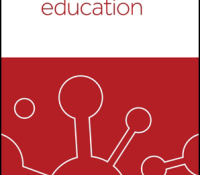eric.ed.gov har udgivet: In this paper, the authors report research focused directly on the validation of the Coding of Academic Teacher-Student interactions (CATS) direct observation instrument. They use classroom information gathered by the CATS instrument to better understand the potential mediating variables hypothesized to influence student achievement. Their study’s purpose is to gather the kinds of validity evidences that match the proposed interpretations and uses of the CATS instrument (Kane, 2008; Messick, 1995). Therefore, they first explore the content aspect of construct validity by collecting information about the content relevance and representativeness of the observation instrument (Messick, 1995). Second, concerned about the consistency of the observation data collected across a number of independent observers, they measure inter-observer agreement. Finally, they focus on the criterion-predictive aspect of construct validity and investigate… Continue Reading →
Like this:
Like Loading...
tandfonline.com har udgivet en rapport under søgningen “Teacher Education Mathematics”: Abstract Formulae display:?Mathematical formulae have been encoded as MathML and are displayed in this HTML version using MathJax in order to improve their display. Uncheck the box to turn MathJax off. This feature requires Javascript. Click on a formula to zoom. Abstract Ontologies play an important role as knowledge domain representations in technology-enhanced learning and instruction. Represented in form of concept maps they are commonly used as teaching and learning material and have the potential to enhance positive educational outcomes. To ensure the effective use of an ontology representing a knowledge domain it needs to be validated. In this paper a previously presented validation methodology for concept maps is exemplified. Two different types of concept map validity are distinguished, referring… Continue Reading →
Like this:
Like Loading...
eric.ed.gov har udgivet: There is growing interest among researchers, policy makers, and practitioners in identifying teachers who are skilled at improving student outcomes beyond test scores. However, questions remain about the validity of these teacher effect estimates. Leveraging the random assignment of teachers to classes, I find that teachers have causal effects on their students’ self-reported behavior in class, self-efficacy in math, and happiness in class that are similar in magnitude to effects on math test scores. Weak correlations between teacher effects on different student outcomes indicate that these measures capture unique skills that teachers bring to the classroom. Teacher effects calculated in nonexperimental data are related to these same outcomes following random assignment, revealing that they contain important information content on teachers. However, for some nonexperimental teacher effect estimates,… Continue Reading →
Like this:
Like Loading...
eric.ed.gov har udgivet: The purpose of this paper is to provide a narrative of work in progress to validate a math app designed for number sense. To date I have conducted classroom research and pilot studies across ten early childhood classrooms in two schools and will begin an empirical study at the beginning of the 2014-2015 school year. Through my work I believe the fields of neuroscience, education, and digital science offer robust and unique ways to address at least two barriers I encountered: identifying instructional computer adaptive software containing embedded assessments and designed explicitly with cognitive models of learning; and developing ongoing collaborative research networks to validate this software. In an attempt to inform the work of those working in the fields of digital science, cognitive science and education,… Continue Reading →
Like this:
Like Loading...
